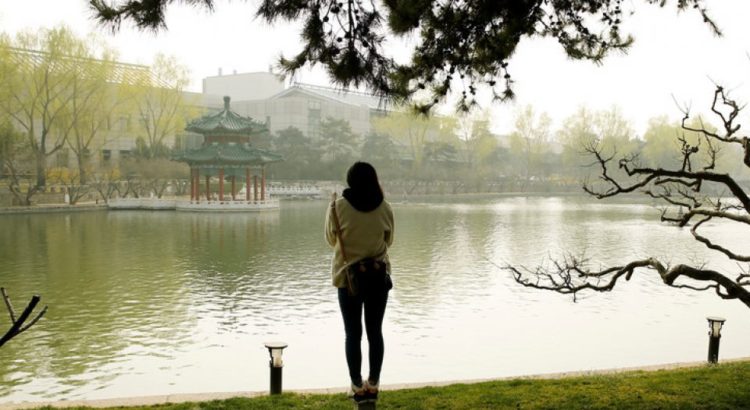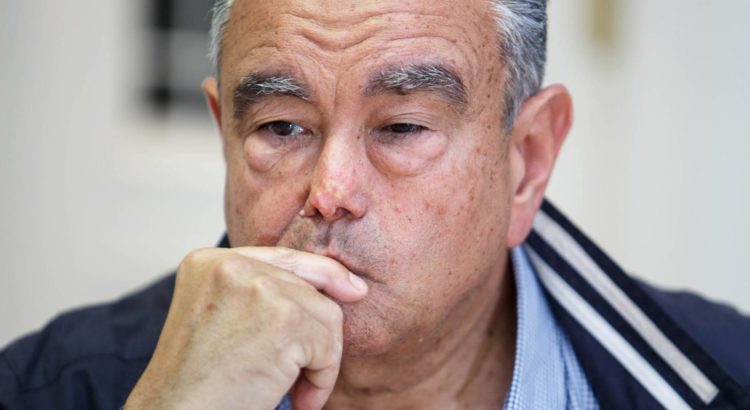Asia/China/Weforum
Resumen: En el marco de una reunión del Foro Económico Mundial en Dalian la próxima semana, Tsinghua Holdings indica que el espíritu humano y la ciencia son clave para el crecimiento inclusivo en China. El siguiente texto forma parte de su discurso
Many years ago, I sat in a classroom at Tsinghua University, staring at Euler’s formula on the blackboard and marveling at its mathematical beauty. This is a formula that relates mathematics’ most famous constants (pi, zero, Euler’s number “e”, and imaginary number “i”) in one equation; its beauty lies in the infinite possible functions and exponents that can be created.
Today, I came across this formula once again, after years of engagement in promoting innovation in technology, industry and culture. I now understand the parallel between Euler’s formula and human life; just as bringing mathematics’ important constants together can create endless possible functions and exponents, uniting humanity’s most promising gifts can create boundless potential for human progress.
We have been blessed with nature’s resources and a strong innovative spirit; these things have enabled all of our scientific, technological and social progress, leading us to a tomorrow of infinite possibilities. In tangible form, this can be seen in our high-speed railways, our colossal cruise ships, our instantaneous communication systems and our artificial intelligence.
The beginning of the 16th century birthed many important scientists, philosophers, and inventors. From the age of discovery through to the information age, human development and scientific innovation have merged together to form the thriving glory that is modern life.
While mathematics is the universal language of communication, it is innovation and the human spirit which provide the path to sustainable and inclusive human development.
Currently, the developmental state of different cultures, nationalities, and regions remains unbalanced. We need both scientific innovation and human spirit to give more people access to modern technology.
In this way, diverse cultures can communicate and develop better relations, resulting in a more stabilized society, increased protection of vulnerable groups, improved environmental conservation, and the potential for more sustainable development in underdeveloped nations and regions.
Innovation is at the heart of creating value – and there are three important factors that encourage innovation. Firstly, the creation of science parks, industrial parks, innovation communities and incubators creates platforms for entrepreneurs to connect meaningfully with innovation resources.
Secondly, sufficient financial resources, including venture capital funds and parent funds, prop up innovation. Lastly, developing vast networks through international cooperation facilitates innovation among enterprises worldwide.
Technological innovation leads us towards a better life. We gather together because technology is making the world smaller and more accessible. The mass application of information technology gives people in less-developed areas access to the internet, connecting them to the outside world, sharing the convenience of the new digital age.
Advances in technology improve our health and thus offer us a better life. Innovative biochip-related products and clinical applications have succeeded in addressing human health needs, such as hereditary hearing loss, Down’s syndrome and thalassemia.
Viewed in economic terms, innovation can of course create unicorn companies (start-ups valued at more than US$1 billion); but more importantly it builds subsidiary sectors within the advanced technology innovation industry.
These sectors have delivered state-of-the-art public safety and security technologies as well as emergency management solutions to national-scale disaster relief, urban public safety, hazardous chemical safety and risk-detection methods.
An advanced security inspection solution has been created, as well as products that serve the needs of civil aviation, customs, railways, highways, and national conferences. The purpose is to enhance safety for the people.
Human spirit, meanwhile, is the key to promoting inclusive growth. To offer a better education to as many people as possible has always been a major challenge.
How can innovation accelerate the impact of education? It’s heartening to see the new trend of massive open online courses (MOOC) succeed in integrating internet thinking into education and providing affordable learning.
As long as you want to learn, access is available to the knowledge you need. In three years, a MOOC platform provided educational services to nearly 160 countries and regions, reaching 7,500,000 subscribers.
Human spirit is no doubt everywhere in life, from the buildings in which we live and work to our preferred holiday destinations. Human settlement science perfectly interprets how we apply science, arts and humanity to a holistic approach aimed at creating a better life.
Due to the advanced technology and knowledge we acquire in virtual and augmented reality, the restoration of historical heritage through digitalization now is a dream coming true.
Urbanization and architecture with the core sense of human spirit have led us to be able to build parks over old waste-water treatment sites, to rebuild historical communities bursting with vitality, and to upgrade traditional industries with new technologies and new ideas.
We strongly believe that our future prosperity will be and must be inclusive, shared by all nationalities and cultures. The common values of humanity teach us to embrace differences, and differences give birth to innovation.
At Tsinghua Holdings, we initiated the Star Clustering Plan with the aim of connecting global innovators, capital, and cooperation. If we take life as Euler’s “e”, and innovation and human spirit as imaginary number “i,” it is certain that we will continue to create new chapters for history.
Life is limited; innovation is infinite.
Xu Jinghong, Chairman of Tsinghua Holdings, is one of the Co-Chairs of the Annual Meeting of the New Champions 2017 in Dalian, China, on June 27-29
The article first appeared on World Economic Forum. Read it here.









 Users Today : 50
Users Today : 50 Total Users : 35460181
Total Users : 35460181 Views Today : 70
Views Today : 70 Total views : 3418853
Total views : 3418853